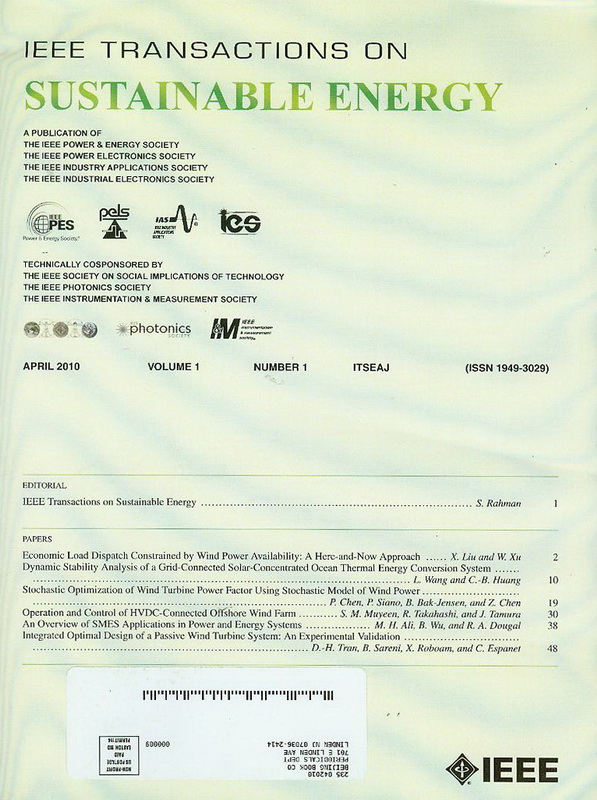利用稀疏智能逆变器数据对大型分布式太阳能光伏发电机组进行超短期预测
IF 8.6
1区 工程技术
Q1 ENERGY & FUELS
引用次数: 0
摘要
分布式太阳能光伏(PV)发电的超短期功率预测在很大程度上是一个尚未解决且极具挑战性的问题,因为对数量庞大的分布式光伏单元的实时数据收集和处理要求过高。在本文中,我们提出了一个创新想法,即利用稀疏选择的一组光伏单元(称为试点单元)的有限实时数据来预测大型分布式光伏单元的功率输出。我们开发了一种分两个阶段解决这一问题的方法。在规划阶段,我们使用 K-medoids 聚类算法来选择试点单位,以便安装实时远程监控基础设施。在运行阶段,我们设计了一个集成了长短期记忆、图卷积网络和多层感知器的深度学习框架,以捕捉试点单位和其他单位之间的时空发电模式,并仅利用从选定的几个试点单位获得的实时数据来预测大型光伏机组中所有单位的电力输出。案例研究结果表明,我们提出的方法在预测单个光伏单元和整个光伏机组的功率输出方面优于所有基准方法,而且预测时间分辨率与天气数据无关。本文章由计算机程序翻译,如有差异,请以英文原文为准。
Ultra-Short-Term Forecasting of Large Distributed Solar PV Fleets Using Sparse Smart Inverter Data
Ultra-short-term power forecasting for distributed solar photovoltaic (PV) generation is a largely unaddressed, highly challenging problem due to the prohibitive real-time data collection and processing requirements for a sheer number of distributed PV units. In this paper, we propose an innovative idea of forecasting the power output of a large fleet of distributed PV units using limited real-time data of a sparsely selected set of PV units, referred to as pilot units. We develop a two-stage method to address this problem. In the planning stage, we use the K-medoids clustering algorithm to select pilot units for the installation of real-time remote monitoring infrastructure. In the operation stage, we devise a deep learning framework integrating Long Short-Term Memory, Graph Convolutional Network, Multilayer Perceptron to capture the spatio-temporal power generation patterns between pilot units and other units, and forecast the power outputs of all units in a large PV fleet using the real-time data from the few selected pilot units only. Case study results show that our proposed method outperforms all baseline methods in forecasting for power outputs of individual PV units as well as the whole PV fleet, and the forecasting time resolution is not dependent on that of weather data.
求助全文
通过发布文献求助,成功后即可免费获取论文全文。
去求助
来源期刊

IEEE Transactions on Sustainable Energy
ENERGY & FUELS-ENGINEERING, ELECTRICAL & ELECTRONIC
CiteScore
21.40
自引率
5.70%
发文量
215
审稿时长
5 months
期刊介绍:
The IEEE Transactions on Sustainable Energy serves as a pivotal platform for sharing groundbreaking research findings on sustainable energy systems, with a focus on their seamless integration into power transmission and/or distribution grids. The journal showcases original research spanning the design, implementation, grid-integration, and control of sustainable energy technologies and systems. Additionally, the Transactions warmly welcomes manuscripts addressing the design, implementation, and evaluation of power systems influenced by sustainable energy systems and devices.
 求助内容:
求助内容: 应助结果提醒方式:
应助结果提醒方式:


